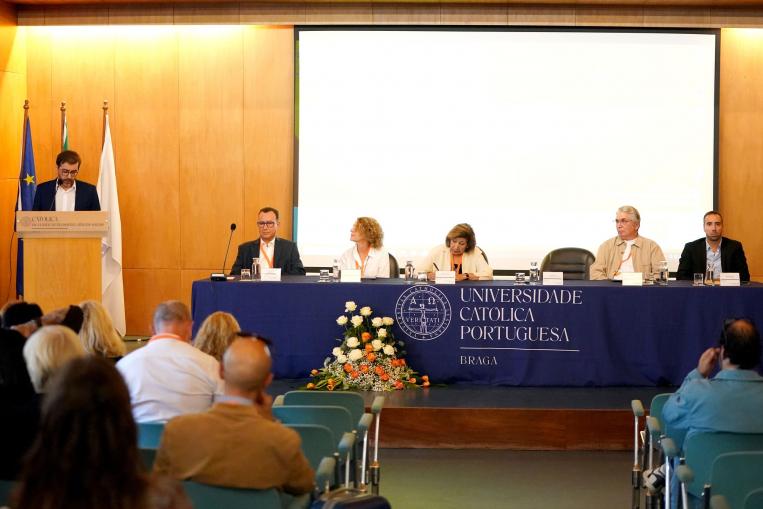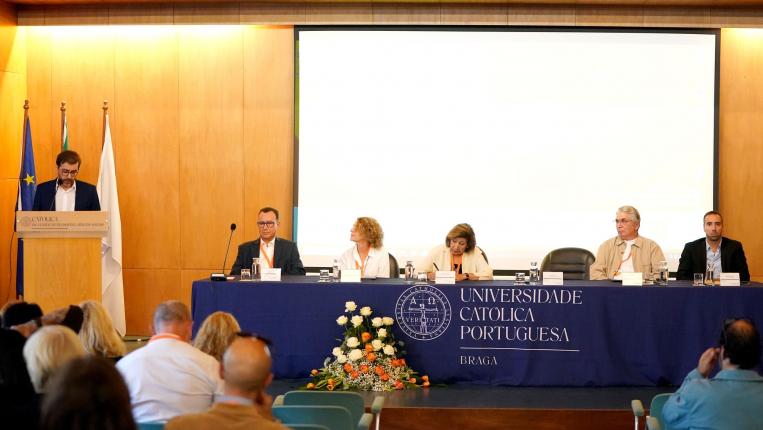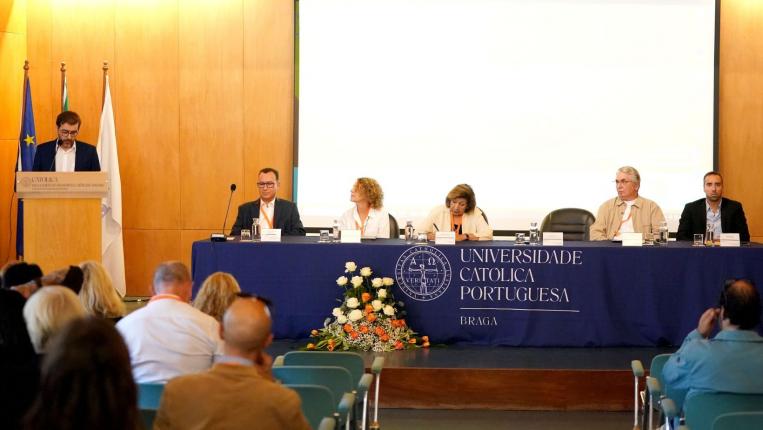
On 9 and 10 October, the Portuguese Catholic University (UCP) in Braga hosted the EWODOR Conference 2025, an international meeting dedicated to sharing experiences and best practices in the field of addiction recovery. Under the motto ‘Building Recovery-Ready Communities,’ the event brought together experts, academics, technicians, and representatives from institutions across Europe with the aim of promoting in-depth reflection on the collective role in addiction recovery.
The initiative, promoted by Projecto Homem - Braga, in partnership with UCP - Braga and the European network EWODOR (European Working Group on Drugs Oriented Research), placed Braga at the centre of the European debate on new approaches to recovery and rehabilitation.
Over two days, participants discussed ways to build more inclusive and supportive communities, where recovery from addiction is seen not only as an individual process, but as a collective effort. Families, institutions and communities were highlighted as essential pillars in creating support networks that promote dignity, hope and social reintegration for those living with addiction.
At the opening session, Paulo Dias, Vice-Chancellor of UCP - Braga, stressed that ‘the problem of addiction will never be solved, but if we do not bring together experts with law enforcement officials and politicians, the problem will not resolve itself. On the contrary, it will tend to persist and increase.’
Paulo Dias also stressed that ‘we cannot think about addiction separately from other mental health problems.’ ‘It is important to put this issue on the agenda because, with the change in the Portuguese model for drugs, addiction is no longer a legal problem but a health problem. However, for those working in the field, it has also become a minor issue, with less support, less funding and less social attention,’ he lamented.
The Braga Solidarity Centre/Project Man views the rise of new addictions linked to technology, excessive use of screens, games or video games with concern. Guilherme Meneses, president of Project Man, warned that apprehension increases when the State ‘takes a long time to systematise a response to this’.
According to Guilherme Meneses, president of Projeto Homem, ‘addictions are always evolving,’ so it is necessary to ‘know how to deal with new consumption issues and new consumer profiles.’ That is why events like this are especially important, particularly at a time when, ‘perhaps due to some shortcomings in public policy, we have seen a resurgence in consumption,’ especially ‘new consumption,’ for which ‘there is still no specific public response.’
The EWODOR Conference 2025 was thus a moment of critical reflection and bridge-building between different sectors, reaffirming the commitment of Braga and the institutions involved in promoting humane, integrated and effective solutions for addiction recovery.



